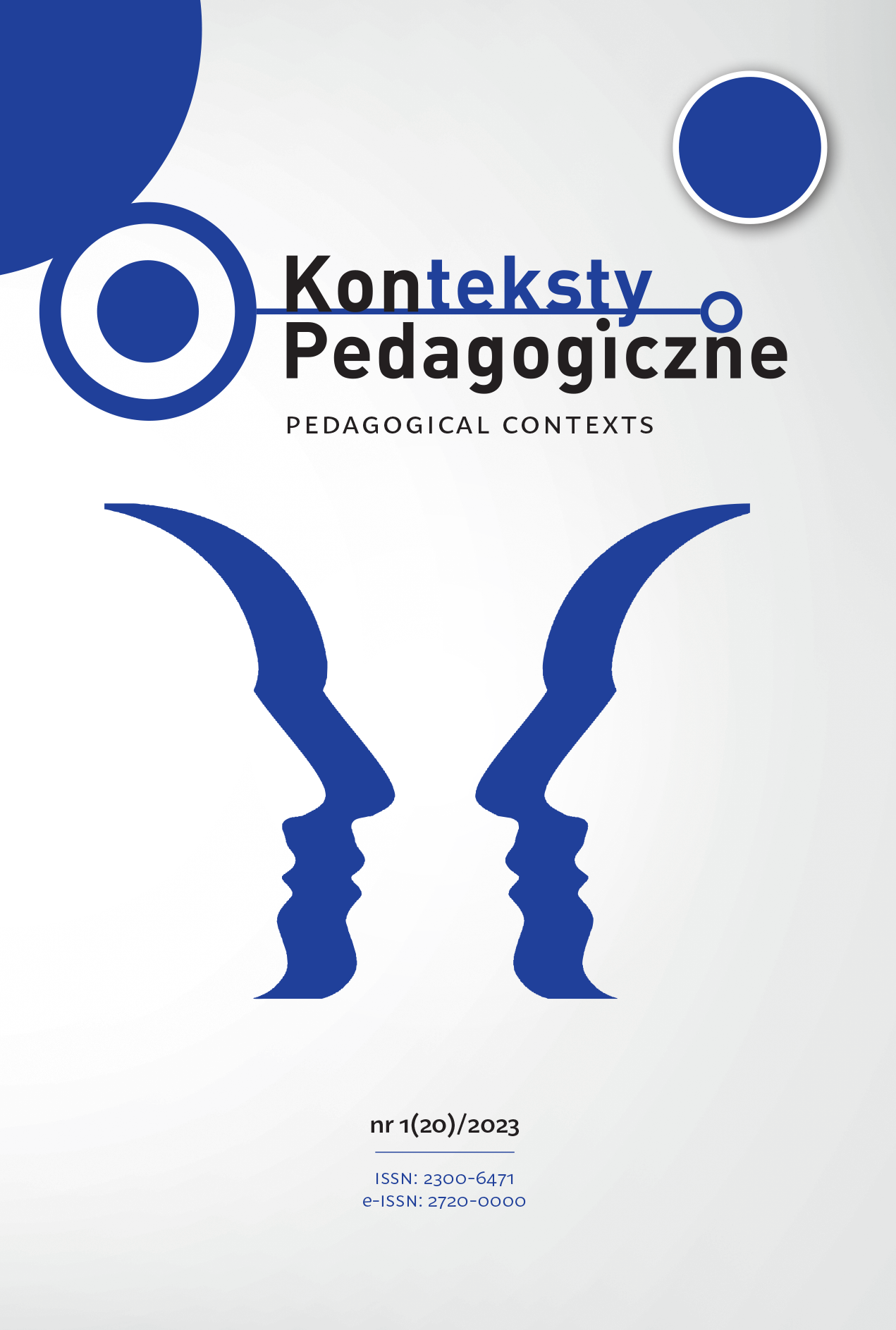Abstract
The theoretical background for the article is derived from the review of the literature in the field of educational and general management theory, sociology of organizations, pedagogy as well as child development. The authors pursued a goal to diagnose the management style from the micro- and macro perspectives, based on a pilot study involving specifically designed in-depth interview. The key research focus was located around the role of people in charge and their management functions in educational institutions. The selection of respondents was carried out on a non-randomized basis; the research sample included two school principals, one kindergarten director, and one person temporarily performing the functions of a school principal at the time of the interview. The research results have been discussed in relation to the current strategies of educational institution management science. The study findings made it possible to conclude that school managers prefer micromanagement, being more content with its seeming efficiency. The reluctance to introduce changes appears for the reason of “comfort” for the work of the whole school team. The selected strategy predetermines the fact that the performance on the ongoing tasks arising from the operation of schools is seen as more significant for both managers and employees than a long-term development policy aimed at the well-being of all the school stakeholders.
References
Bucăloiu, I. (2019). Comparative Analysis of Micro- and Macromanagement Features of the Inclusive School. “Ovidius” University Annals, Economic Sciences Series, XIX(1), 376–380.
Chambers, H. (2004). My Way or the Highway: The Micromanagement Survival Guide. San Francisco: Berrett-Koehler.
Delgado, O., Strauss, E.M. & Ortega, M.A. (2015). Micromanagement: When to Avoid It and How to Use It Effectively. American Journal of Health-System Pharmacy, 72, 772–776. DOI: 10.2146/ajhp140125.
Gruszczyński, L.A. (1999). Kwestionariusze w socjologii: budowa narzędzi do badań surveyowych. Katowice: Uniwersytet Śląski.
Kubiczek, B. (2016). Sztuka zarządzania oświatą. Przywództwo i zarządzanie. Teoria i Praktyka. Opole: Wydawnictwo Nowik.
Levitas, E. (2013). Demand-Side Research’s Role in Macro-Management: A Commentary on Priem, Li, and Carr. Journal of Management, 39(5), 1069–1084.
Limon, İ. & Dilekçi, Ü. (2020). Development and Initial Validation of Micromanagement Scale for School Principals. Participatory Educational Research, 8(1), 123–140. DOI:10.17275/per.21.7.8.1.
Lorens, R. (2021). Nowoczesne zarządzanie szkołą i placówką oświatową. Warszawa: Wolters Kluwer.
Mishra, N., Rajkumar, M. & Mishra, R. (2019). Micromanagement: An Employers’ Perspective. International Journal of Scientific & Technology Research, 8(10), 2948–2952.
Niedźwiecka, A. (2012). Modele zarządzania oświatą w polskich samorządach. Warszawa: Wydawnictwo Uniwersytetu Warszawskiego.
Nowak, S. (2007). Metodologia badań społecznych. Warszawa: Wydawnictwo Naukowe PWN.
Serrat, O. (2010). The Travails of Micromanagement. Washington, DC: Asian Development Bank.
Shuford, J.A. (2019). Micromanagement: the Enemy of Staff Morale. ACA.
Sumi, K.V. (2016). Dilemmas of IT Professionals with Special Emphasis on Micromanagement. International Journal of Advanced Research, 4(11), 794–800.
Zieliński, J. (2012). Metodologia pracy naukowej. Warszawa: Oficyna Wydawnicza ASPRA-A.

This work is licensed under a Creative Commons Attribution-ShareAlike 4.0 International License.
Copyright (c) 2023 Pedagogical Contexts

